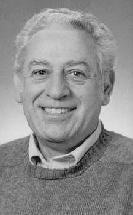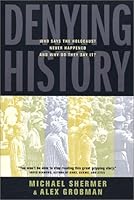Recently the news has featured a member of the Catholic clergy who was criticized for his views on Holocaust Denial. Bishop Richard Williamson, who according to the Times news paper is a member of an "ultraconservative sect" of the Catholic Church, had his excommunication lifted in January this year, but immediately ran in to problems due the views he expressed on a Swedish TV show. He issued a public apology on 26 February, but few people were happy with its tone. Williamson apologized for upsetting anyone, but he didn't indicate he had changed his views. There is now more talk about him being prosecuted in Germany where it is apparently an offence to deny the holocaust: http://www.irishtimes.com/newspaper/world/2009/0228/1224241990165.html
Holocaust Denial is, of course, another example of pseudo-history. There is also a conspiracy theory believed by many "Holocaust Revisionists". Understandably it is a very offensive "theory" to those who lost their relatives to the holocaust. It is also hard to see any other link to holocaust denial and especially those who believe in the "Jewish Consipiracy" than anti-semetism. It is for these reasons that many see Holocaust Denial as a hate crime. Unfortunately I fear, taking the view that you should be arrested for propagating bad history will only help strengthen the con-theos rather ridiculous case. For more on holocaust denial I would
recommend you read Michael Shermer's chapter on the subject in his "Why People Believe Weird Things" book or his collaborative work "Denying History", which focuses on the whole argument. Here are some worthy reviews of the latter work http://www.holocaust-trc.org/deny_history.htm As a side point and in the interests of keeping matter objectiv, there is also an interesting critique of Shermer's argument that doesn't support holocaust denial in anyway, but nevertheless pulls the author up on supposed logical fallacies http://www.geniebusters.org/915/04g_jumping.htmlThis gives an example of what makes history and science the best known methods for establishing fact: they are always up for review and objective criticism, and good historians and scientist welcome such challenges in the interests of further knowledge and understanding.
Holocaust denial is also an example of pseudoscepticism (pseudoskepticism). This is a term coined by Marcello Truzzi.
 Image via Wikipedia
Image via Wikipedia
"In science, the burden of proof falls upon the claimant; and the more extraordinary a claim, the heavier is the burden of proof demanded. The true skeptic takes an agnostic position, one that says the claim is not proved rather than disproved. He asserts that the claimant has not borne the burden of proof and that science must continue to build its cognitive map of reality without incorporating the extraordinary claim as a new 'fact.' Since the true skeptic does not assert a claim, he has no burden to prove anything. He just goes on using the established theories of 'conventional science' as usual. But if a critic asserts that there is evidence for disproof, that he has a negative hypothesis --saying, for instance, that a seeming psi result was actually due to an artifact--he is making a claim and therefore also has to bear a burden of proof".
Very often con-theos are pseudosceptics by design. They start with a preconceived conclusion and then progress with a confirmation bias. Such an approach means that they are prone to nitpick for details they feel contradict the established view and support their own. Often in the recording martial arts and circus history I have noticed that too much has been provided by anecdotal evidence and, worse still, qualified by the appeal to authority logical fallacy argument. This is why I don't like to see any historical figure to be presented in a saintly or devilish light. I want "warts 'n all" accounts so that I can humanize the figure and get closer to the truth.
A pseudosceptic can also be a cynic. They can take the position of doubt
 Image via Wikipedia
Image via Wikipedia

![Reblog this post [with Zemanta]](http://img.zemanta.com/reblog_e.png?x-id=a23155c7-85f2-43e3-8d89-24f57f387137)
No comments:
Post a Comment